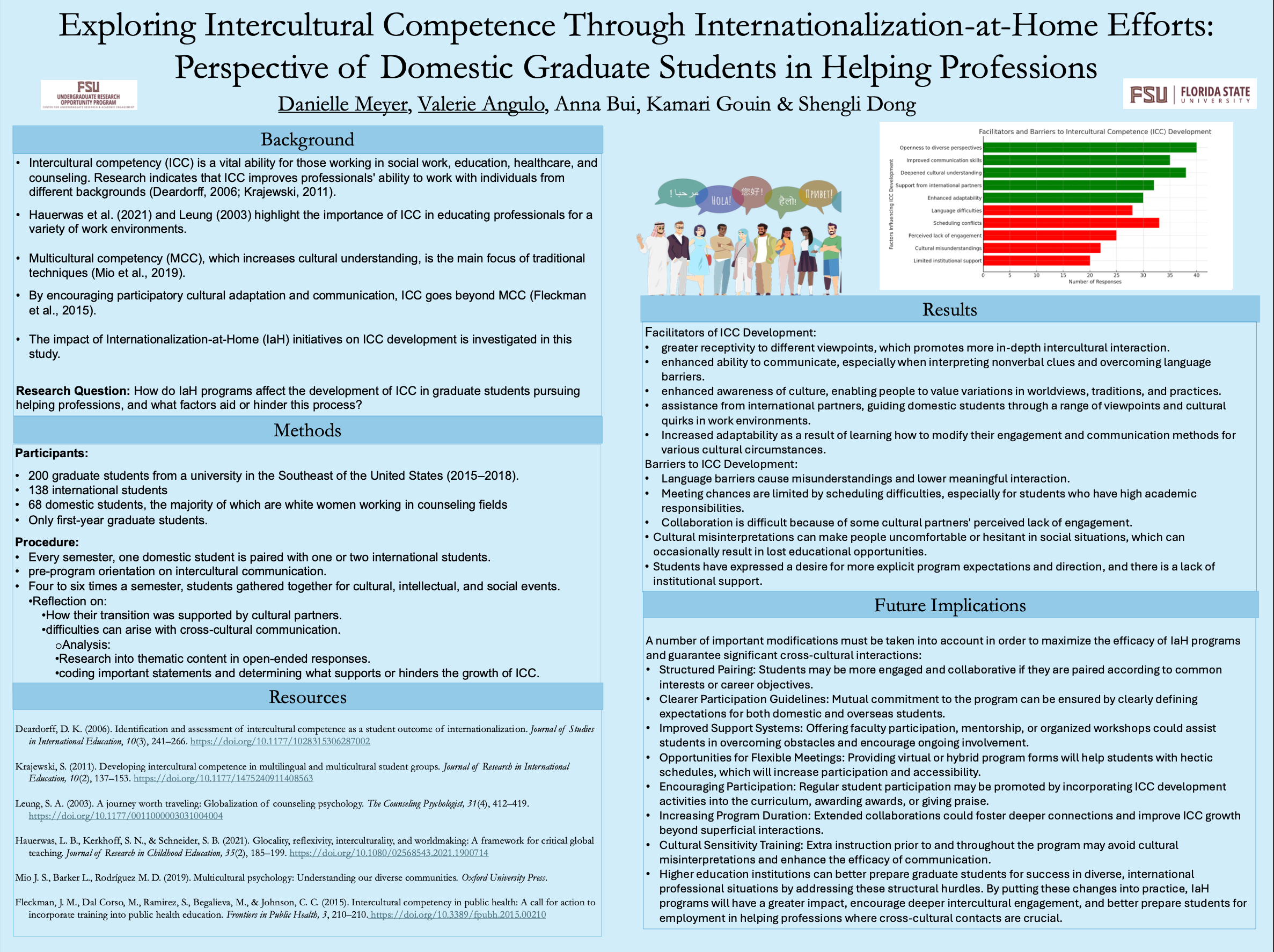Research Symposium
25th annual Undergraduate Research Symposium, April 1, 2025
Valerie Angulo Poster Session 2: 10:45 am - 11:45 am/ Poster #63
BIO
Hello! My name is Valerie Angulo, and I am a sophomore nursing major at Florida State University. My research explores intercultural competence (ICC) in helping professions through Internationalization-at-Home (IaH) programs. My research, "Exploring Intercultural Competence Through Internationalization-at-Home Efforts: Perspectives of Domestic Graduate Students in Helping Professions," examines how organized cross-cultural exchanges improve ICC. Our analysis of 68 domestic graduate students' experiences in a cultural partner program revealed important elements that either supported or impeded the development of ICC, such as barriers to involvement, cultural awareness, and communication growth. The results show the value of reciprocated involvement and offer ways to enhance IaH projects in the future. My passion as a future nurse practitioner is providing healthcare that is culturally competent. My comprehension of how cross-cultural contacts impact professional development has expanded as a result of this research. I am passionate about sharing my research and discussing ICC's significance for healthcare.
Exploring Intercultural Competence Through Internationalization-at-Home Efforts: Perspective of Domestic Graduate Students in Helping Professions
Authors: Valerie Angulo, Dr. Shengli DongStudent Major: Nursing
Mentor: Dr. Shengli Dong
Mentor's Department: Department of Educational Psychology and Learning Systems Mentor's College: College of Education Co-Presenters: Danielle Meyer
Abstract
This study explores the impact internationalization-at-home (IaH) programs can have in amplifying intercultural competency (ICC) in domestic, graduate-level students within helping professions. The increasingly globalized world calls for multifaceted, culturally competent helping professionals who can engage with diverse clients to promote improved treatment outcomes. We modeled our study based on Deardorff's (2006) theoretical framework, which suggests cross-cultural interactions continuously boost ICC. In our study, an analysis of the experiences of 68 domestic graduate students that were enrolled in a semester-long cultural partner program was conducted using a qualitative methodology. Each domestic student was paired with one or two international graduate students and was encouraged to create meaningful cross-cultural interactions by participating in several activities together. Students then reflected on their experiences via surveys and open-ended questions. A thematic analysis of these responses revealed primary components that facilitated ICC development, as well as the elements that created challenges. According to findings, students grew their communication skills, cultural awareness, and increased their openness to different viewpoints. However, barriers to ICC development included language limitations, scheduling conflicts, and sense of cultural partners being uninterested in participating. Overall, the study’s findings highlighted the importance of mutual engagement in IaH programs. Future studies can utilize our results to craft additional research that minimizes ICC developmental barriers such as implementing engagement incentives or extending program length.
Keywords: Cultural Competence, Cross-Cultural Communication, Global Engagement, Intercultural Learning, Diversity & Inclusion

